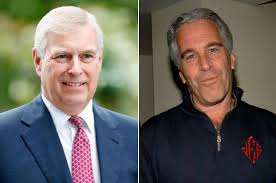


Posted November 22, 2019
If Prince Andrew prepared for his recent interview with media advisors, he needs to sack them immediately because there were so many things he did wrong. These are common among media spokespeople and have a huge impact when the stakes are so high.
 Mistake One: Don’t lean back in the chair and cross your legs. It automatically puts you in a defensive position. If you sit up straight with your head closer to the camera than your stomach, you look proactive and natural.
Mistake One: Don’t lean back in the chair and cross your legs. It automatically puts you in a defensive position. If you sit up straight with your head closer to the camera than your stomach, you look proactive and natural.
Mistake Two: Have a message of your own. Most people think a media interview is a Q&A. It’s not. You are going to answer questions, but you also need a message to contribute. His should have been around sympathy and he should have used it after he answered difficult questions. For example: Interviewer. “Why did you go and stay with Epstein?’ Andrew: “I didn’t think it through well enough and can see now it was a big mistake. I just feel so sorry for his victims and I’m sickened now that I had anything to do with such a despicable person.” Instead he said he thought it was the honourable thing to do.
If you only answer the question and don’t refer back to one of your own key points, you have no control over the outcome of the interview and the person asking the questions has all the power. This doesn’t mean you don’t answer questions, but it does mean you contribute material to the interview and get your points through.
The classic New Zealand example of this was Colin Craig before the 2014 election. When asked if he thought Chem Trails were a Government conspiracy, he said he didn’t know. If he had said,” I don’t know, but what I do know is that the government has too much power over our lives, which is why we need binding referendums,” the subsequent story may well have focused on referendums. Andrew wouldn't have been able to change the story focus, but he could have minimised the reputational damage he has suffered as a result.
Mistake Three: Have brief answers ready for the obvious tough questions and make sure they are in the language used by the audience: In an answer to a question about what Epstein had done, Andrew said the sex offender had acted “in a way unbecoming.” That not only sounds elitist but belittles the seriousness of sex offending.
Mistake Four: Show some emotion. This is an emotional issue so he needed to show some genuine emotion. At some point he should have said something like: “As a parent myself, I’m just appalled by what this man did. He’s wrecked so many lives and clearly had no respect for anyone apart from himself.” That may well have been a sound bite for news programmes.
Mistake Five: He needed to keep referring back to his message so he could make the interview about the victims rather than himself. The focus would have still clearly been about him, but it would have shown, or at least suggested that he cared, and that’s what people want to hear. He failed miserably.
What would my advice have been?
If he felt he couldn’t answer some of the questions credibly, he could have released a brief video denying the allegations without the details and make the focus SYMPATHY for the victims. Then media would have nothing else to use in their stories.
If you need to refresh your own media interview skills, contact [email protected]